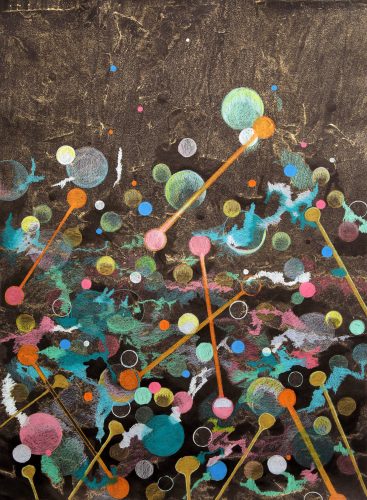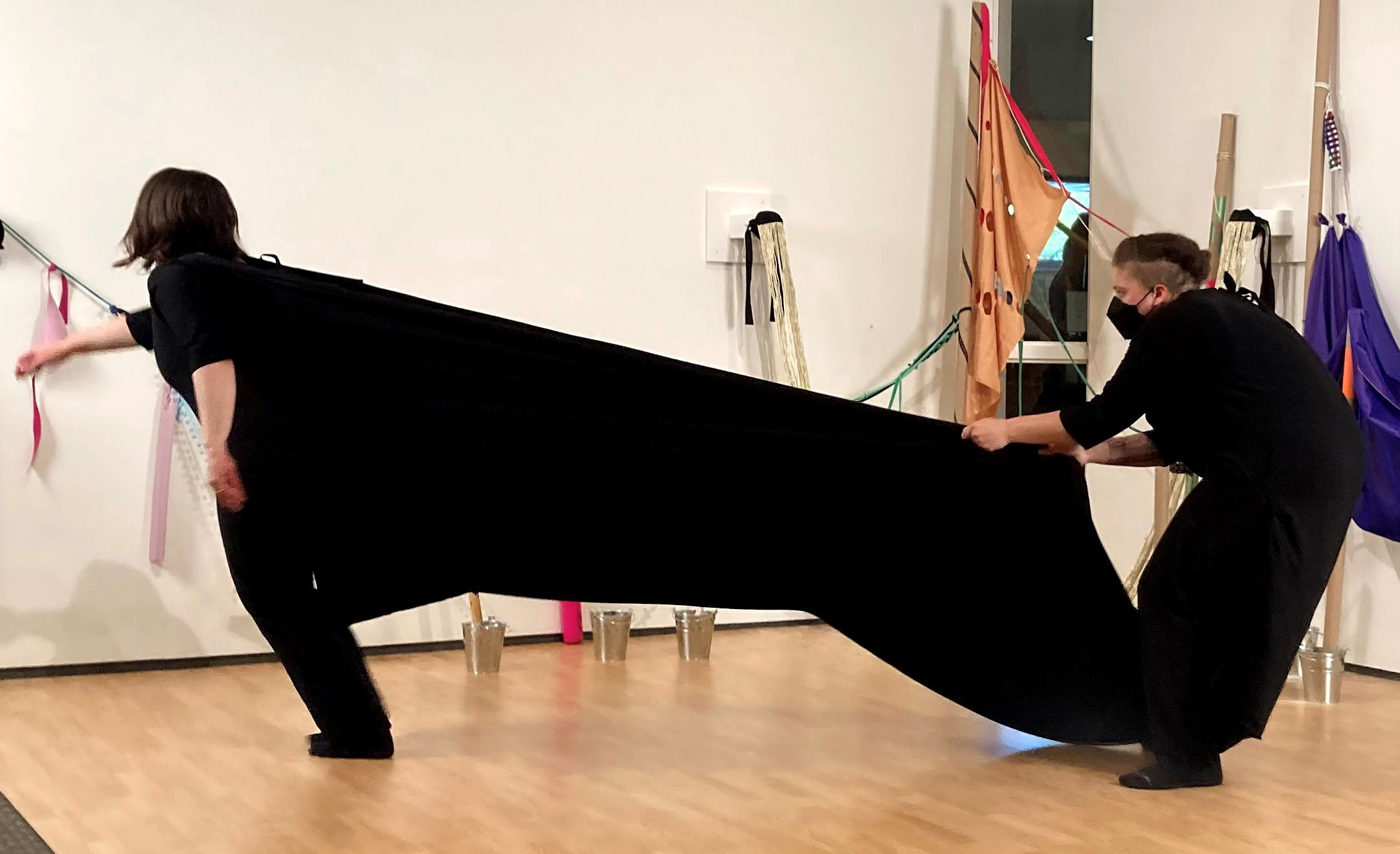
The art in Locating, an exhibit that runs through May 15 at the Hallie Ford Museum of Art in Salem, began when artist Cayla Skillin-Brauchle felt like “the world was going to burst.”
It was 2019, and the Willamette University art professor made the 30 drawings on display with assistance from a Djerassi Residency. The show and associated art performances were to open April 2020, but then Willamette University, which is where the Hallie Ford is located, shut down due to COVID-19.
The Hallie Ford happens to be the last museum I attended before the pandemic hit. I was there to meet a curator the day the university decided to close. So the art review I wrote, about a different show, was about an exhibit that could no longer be seen.
The museum shut down a month before Locating was to open the first time. Now, one year later, it opens carefully, allowing only four people in the gallery at a time. The two performances, which feature Skillin-Brauchle and Cal Lawton, took place in the museum, were live streamed and are now available for viewing on YouTube.
When creating the work for this exhibit Skillin-Brauchle had on her mind such issues as the climate crisis, the increasing polarization of politics and inequalities in race relations. The large scope of her subject(s) was hard to describe with a single image or even with words, which is perhaps why she turned toward installation and performance. She teaches installation art, as well as drawing, performance art and social practice. Her performance partner, Lawton, is an ex-student of hers who graduated from Willamette’s art program in 2018.
Skillin-Brauchle explains the theme of Locating in terms of spaces. It has to do, she says, with “how we think about our bodies in conceptual, political and abstract spaces.”
Since she is not expert in all that interests her, she met with colleagues in various other departments at Willamette. Together with Lawton, she met with Briana Lindh, an instructor of biology and associate director at the Sustainability Institute, and with Daniel Borrero Echeverry, a physics professor.
Borrero Echeverry studies “complex spatiotemporal dynamics,” so it makes sense Skillin-Brauchle sought out his expertise. In her show she tries to get across a score of complex material, including “visual and conceptual experiments, illustrations of learning(s), evidence of attempts to unlearn, wayfinding devices, fantastical scenarios, celebrations of a life lived, and more.”
The concepts of “Gravity” and “Suspension,” also titles of two of her abstract drawings, are on full display during the performances. Skillin-Brauchle and Lawton act out in three stages, and guided by costume, the effects one body — or person — may have on another. At one point they wear a two-sided mask, keeping at least eight feet apart. Their costume reminds me of the kind Martha Graham wore in her famous fabric dance, where movement of the actor or dancer dramatically changes the shape of the material.
The performance piece, “Our Bodies Know the Way,” is much changed from its original inception. It was initially choreographed with multiple performers who came in contact with each other. Given the restrictions still in place for social distancing, changes had to be made. It’s not the performance it was supposed to be when first planned, but then the world has much changed since then.
The artist says it almost feels like this project was anticipating the end of life as we knew it. The performance seems to echo that feeling. The fabric keeps the two people in it distanced at all times, as necessary. The material or costume also keeps them from falling, says Skillin-Brauchle, particularly when they lean back, they each feel held by the other.
Locating runs through May 15 at The Hallie Ford Museum of Art, 700 State Street, Salem. The museum is on campus at Willamette University, across the street from the State Capitol. Hours are noon to 5 pm Tuesday through Saturday. Admission is $5 for adults, $4 for seniors, free for 17 and under.
